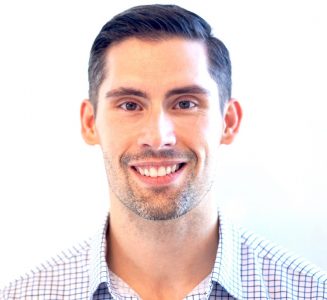Ryan Flannigan
Title: Assistant Professor
Department and Affiliations: Urologic Sciences
Program: Reproductive & Sexual Medicine
Location: Vancouver Prostate Centre
Tell us about your role in a project and how it relates to translational medicine.
As a surgeon and scientist, I am fortunate to have unique opportunities of experiencing first hand, the limitations in current clinical diagnostics, workflows, and treatments. These limitations serve as the impetus for translational research to better understand the problem and work to find novel solutions. It is in these scenarios, it is my job recruit scientific talent and assemble a team with the skill sets necessary to create a solution.
What makes you passionate about your specific area(s) of research?
It is stimulating to think about the possibilities of solving problems and transforming healthcare delivery for patients that I see day in and day out who are faced with the reality of our therapeutic limitations. Being able to develop and implement solutions that will improve their quality of life is really exciting.
What would optimal translational medicine in your area of research look like?
Translational medicine can truly take many forms even in my specific niche of reproductive and sexual medicine. In my program it involves things such as drug discovery, medical device development, creation of diagnostic tools, and in vitro technology developments depending upon the problem we are trying to solve. The common principals needed to create translational solutions, is first the identifying specific problem to address, breaking down the translational components necessary to address from clinic to lab and back to clinic, then assembling the team to do the work.
What has been the biggest barrier you’ve faced in your work and how did you or will you overcome it?
Time. Balancing clinical practice, research, administrative and family responsibilities can be very challenging. Using all the moments of the day productively is something I continue to strive for.
You are part of the Academy of Translational Medicine Early Career Researcher cohort at UBC. What is the most important aspect of that community for you?
Exposure to other researchers’ work, innovations and approaches can stimulate new ideas and potential collaborations.
Is there a resource that you found impactful and would recommend to others interested in translational medicine?
I find it helpful speaking to other researchers that have developed parallel programs in related or unrelated fields to understand their journey, approaches that have worked, and approaches that they have learned from.
What is a tangible step that those interested in translational medicine can take if they don’t know where to start?
Find an area that you are very passionate about, ask a lot of questions to understand where the boundaries are, then start asking ‘what if’ – the details, experimental design, and teammates needed will follow.
How do you like to recharge?
Family time, exercising and a good movie!
